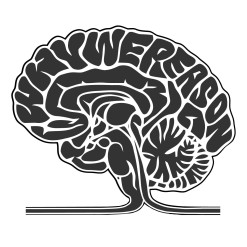What Made Christopher Hitchens Great
Christopher Hitchens was a man who called Mother Teresa a, “lying, thieving Albanian dwarf,” when most of the world worshipped her as a saint. He said it was a, “shame that there is no hell for [Jerry] Falwell to go to” days after Falwell’s death. He labeled Henry Kissinger a “murder conspirator and war criminal,” Sarah Palin a “national disgrace,” and back in the 1980s said that, “Reagan is doing to the country what he can no longer do to his wife.” He might be most remembered for believing that organized religion is “the main source of hatred in the world.” Calling him provocative would be an understatement.
Yet, Hitchens was not provocative just for the heck of it, his deliberations maintained a steadfast allegiance to rational thought. He was not an ideological talking head either, he was motivated by the truth and strictly defended the values of the Enlightenment. This is why it is incorrect to label Hitchens as the atheist’s version of religious fundamentalists. Unlike the fundamentalists, the claims Hitchens made were researched, grounded in facts and science and remarkably informed by a deep understanding of history and literature. His intellectual palette far exceeded those of religious demagogues.
One reason the United States Congress and presidency have such low approval ratings is because the individuals who comprise them are either unwilling or unable to participate in discussions that are honest in their content, clear and logical in their presentation and true in regard to the facts. In other words, they are unequivocally non-Hitchen. A large part of the atheist movement, which Hitchens was the face of, is the advocacy of reason at the individual and institutional level. Along with rightfully dispelling irrational thinking motivated by ungrounded religious beliefs, God Is Not Great is a book that will continue to further this process. Hopefully lawmakers and laypeople will read it as a call for society to be more reasoned and anchored by what is true.
I hope that we will remember Hitchens as we remember great artists. Like Stravinsky, who induced a riot with his paradigm shifting Rite of Spring, Dylan, who was called “Judas” for going electric, Picasso, who portrayed women the way he did, or Warhol, who treated art like Ford built the Model-T, Hitchen’s opinions and rhetoric replaced the expected with the unexpected while maintaining a coherent structure and clear vision; he didn’t change the medium of journalism just like Stravinsky, Dylan, Picasso or Warhol didn’t change music or visual art per se, but he did offer ways of understanding the world that nobody else had done previously. Like the groundbreaking artists of the past, his initial rejections and ongoing diatribe with mainstream thought eventually gave rise to new definitions of what is good or normal and what ought to be valued.
This is what made Hitchens great: like the Parisians who were so taken back by the dissonance of Stravinsky’s ballet, Hitchens’ critics so desperately wanted his inharmonious rhetoric and writings to resolve but knew, at the same time, that the tension he created and the chords he struck were why he will be remembered as one of the best.



I don’t doubt that he was intelligent and well read, far more so than most fundamentalists, and I love him for that fact. But the best of the fundamentalists tend to be fairly well read as well, even if wrong. For his dogmatism I label him as the atheist’s version of fundamentalist. It is people like Dawkins and Hitchens that make me more likely to embrace the label of agnosticism over atheism. That being said, I am sad Hitchens is gone, for his genius and for his role as (literally at times) the devils advocate.
Well put Brian. Understandable.
Although I think agnosticism is intellectually lazy
Hence, more comfortable.
I’m going to miss Christopher Hitchens.
He laid down some perspicacious rhetoric, even if the philosophy behind much of it was lacking. The number and breadth of fallacies committed were impressive, ah but the rhetoric! The Hitch Slap, as it has come to be known, was a thing to behold.
No doubt, he had a way with words, that at times, astounded me. However when you say that he was motivated by the truth, I didn’t realize that his atheistic fundamentalist view of the world was in fact, the truth. Unfortunately, his arrogance and mean spiritedness took precedence over his intellect. I will miss the Hitchens of the earlier days of the Nation.
Nice, George.
George, be more clear. Are you suggesting that Hitchens was not motivated by the truth?
Also, his arrogance and mean spirit certainly did not take precedence over his intellect. He was, after all, ranked as one of the world top public intellects year after years over the last few years.
Sam, you may be interested in: http://www.secularhumanism.org/index.php?section=library&page=flynn_30_3
In regard to this article, Fred, I don’t think anyone said the New Atheists were arguing new points. The were labeled New Atheists, because, well, their books did sell millions. The author of the article seems to think that the popularity of their books undermines their novelty. The popularity of their books was their novelty.
Religious demagogues* instead of demigods?
Thanks Andre!
Hitchens was a pseudo-intellectual. Nothing more or less.
If he was a pseudo-intellectual I would love to know your definition of real intellectual.